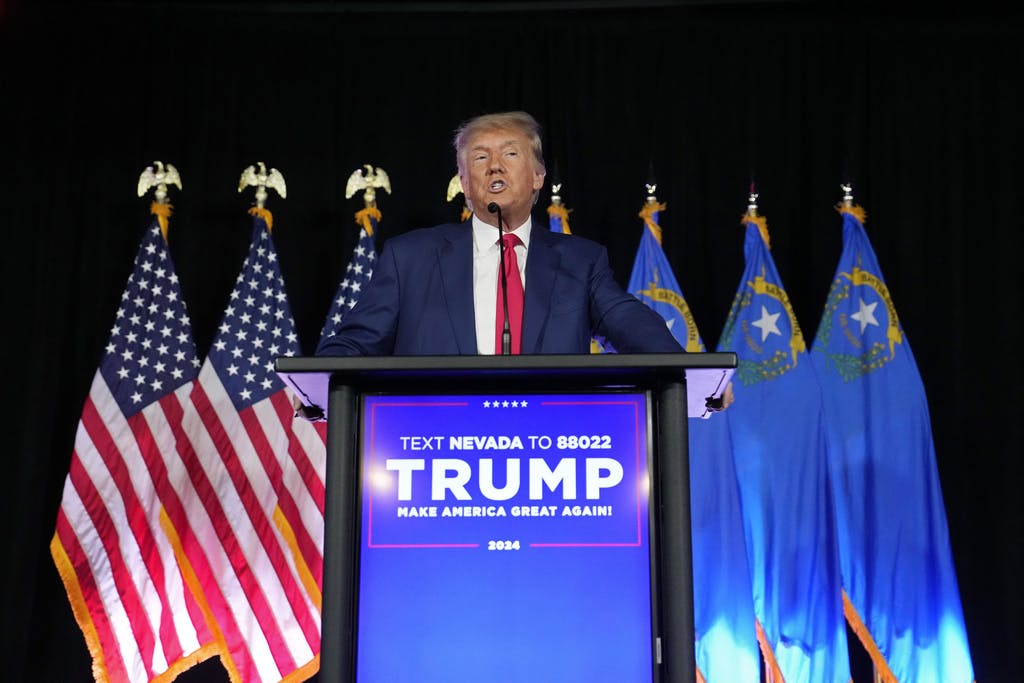Nevada Fake Electors Hope To Get Case Dismissed at Hearing Wednesday
The pro-Trump fake electors in Nevada have a trial scheduled for January 2025.

A Nevada judge is set Wednesday to hear arguments from pro-Trump alleged fake electors who are accused of attempting to misrepresent the results of the 2020 election to deliver a second term to President Trump. The fake electors are hoping to have the case against them at Clark County District Court dismissed.
In December, a slate of Republicans — including Nevada’s GOP chairman, Michael McDonald, the Clark County Republican Party chairman, Jesse Law, and four others — was indicted by a grand jury at Clark County.
They were hit with two felony charges stemming from their alleged participation in the plot to forge fake documents and submit them to officials in order to deliver the state’s electoral votes to Mr. Trump. In December 2020, the six defendants held a ceremony where they signed their own documents dedicating the state’s electors to Mr. Trump on the same day that the state selected its actual electors.
“We, the undersigned, being the duly elected and qualified electors for president and vice president of the United States of America from the State of Nevada, do hereby certify six electoral votes for Trump,” the document signed by the fake electors read.
One of the defendants, Jim DeGraffenreid, corresponded with an adviser to Mr. Trump, Kenneth Chesebro, about the plan. Pro-Trump Republicans pursued similar schemes to disregard the results of the 2020 election in Wisconsin, Michigan, Arizona, Pennsylvania, Georgia, and New Mexico.
At the hearing Wednesday, attorneys for the defendants will argue that the case against them should be dismissed. If Judge Mary Kay Holthus rejects their effort, the case is set to be argued in January 2025.
Attorneys for the fake electors have argued that the attorney general’s office was wrong to bring the case because the alternate electors did not intend to deceive anyone with their elector ceremony. “There is a distinction between offering a forged document and offering a genuine document that contains false information and the latter is not ‘forgery,’” attorneys for the defense wrote in a filing.
Attorneys for the fake electors had previously argued that the case should be tried at Carson County and not Clark County, though they were unsuccessful in their push for a change in venue.
Most recently in the case, attorneys for the defendants have accused the state of withholding evidence, specifically regarding communications with Mr. Chesebro concerning the rationale for why the electors were voting in Nevada.
In other states, the pro-Trump electors cited ongoing legal challenges to election results as a reason for selecting their own slate of alternate electors. At the time when the fake electors were chosen in Nevada, though, no such litigation was ongoing.
Should the case go forward, the state is expected to respond to the defendants’ accusation by May 15. The attorney general’s office in the state has said that it does not comment on ongoing cases but that it remains confident in its case. Attorneys for the defense did not immediately respond to a request for comment from the Sun.

